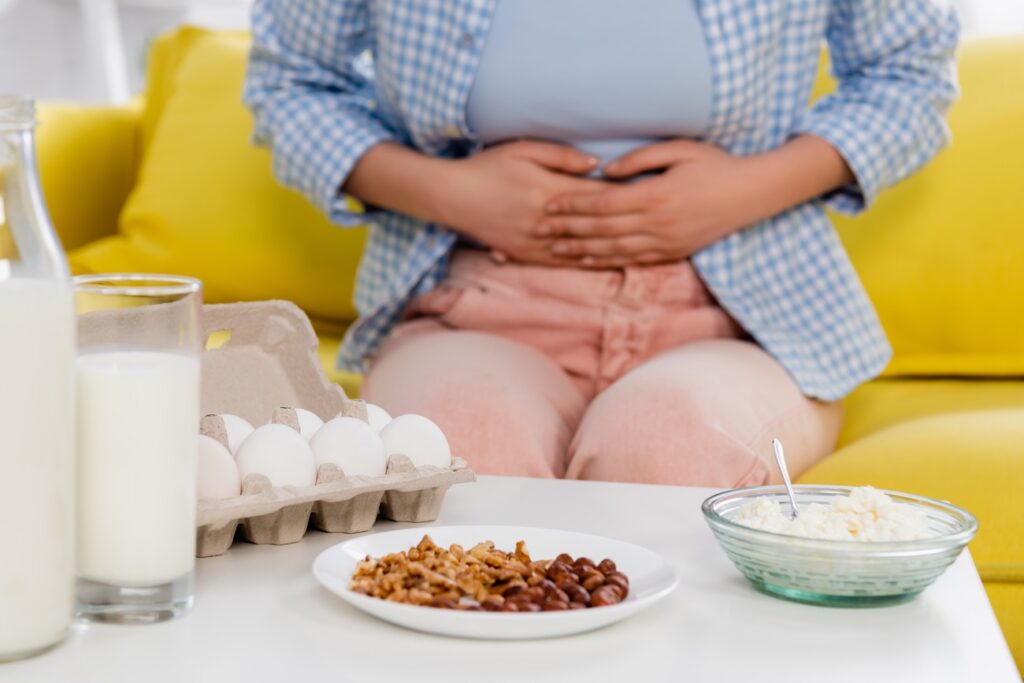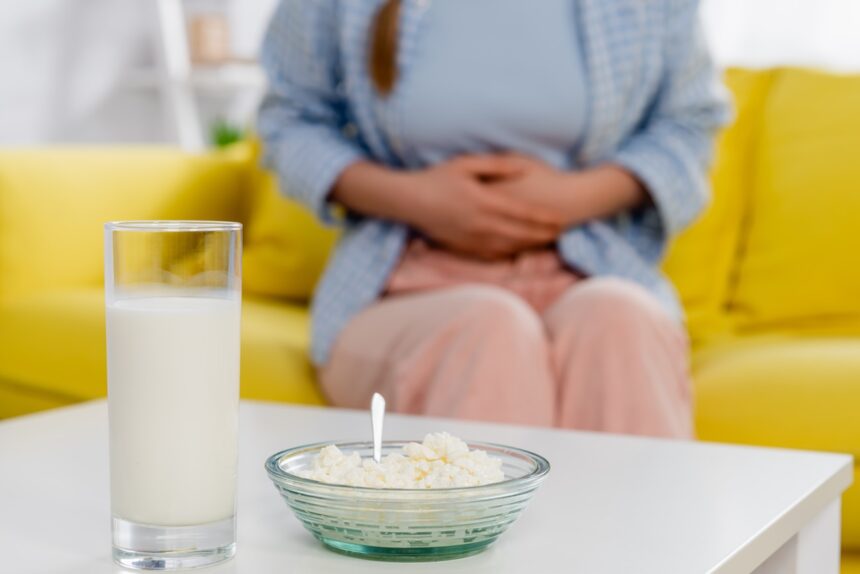Ah, bloating- the unwelcome guest who always seems to arrive fashionably late to the dinner party. Whether it’s the post-meal bloating that leaves us feeling uncomfortably full or the bloating triggered by certain foods, we’ve all experienced the discomfort it brings. In this blog, we’ll delve into the science behind bloating, exploring its underlying causes and shedding light on the factors that contribute to this common issue. We’ll equip you with a range of effective strategies to combat bloating, providing you with practical tips and insights to help you find relief and regain control over your digestive well-being.

Bloating is a common gastrointestinal issue characterized by a feeling of fullness, tightness, or swelling in the abdominal area. It is caused by an accumulation of gas in the digestive system or an increase in fluid or solids in the gut. After we indulge in a satisfying meal, it is completely natural for our stomachs to expand in order to facilitate the process of digestion. This expansion allows our digestive system to work its magic, breaking down the food we’ve consumed and extracting the vital nutrients our bodies need for nourishment and energy. Not only do we experience these sensations, but they also manifest visibly through a distended abdomen, causing some to feel their clothes have suddenly become tighter and constricting.
Understanding the distinction between bloating and fat is crucial for understanding their fundamental differences. By differentiating these two conditions, we can recognize their characteristics and implications. Bloating is a transient and temporary phenomenon that is a result of various factors such as gas accumulation, water retention, or digestion.
On the other hand, weight gain signifies a more enduring change in body mass. It involves a measurable and lasting increase in overall weight over an extended period of time. Weight gain occurs due to a variety of reasons, including an increase in body fat, muscle growth, or fluid retention. Here are some practical suggestions that may be useful in combating bloating:
- Food combining is a dietary approach based on the belief that certain food groups should be consumed separately to improve digestion and overall health. Different types of food require different digestive conditions and enzymes, when combined inappropriately, they can lead to digestive issues such as bloating and reduced
nutrient absorption. - One of the key factors contributing to bloating is eating too quickly and not chewing food thoroughly. This is one of the most common causes of bloating, overeating or consuming food too quickly can cause our stomach to distend. Practicing mindful eating can work wonders for our digestive system. Take the time to savor each bite, chew your food well, and pay attention to your body’s cues of fullness. Slowing down during meals, chewing food thoroughly, and avoiding gulping down beverages minimizes the air we swallow. Engaging in mindful eating also enhances digestion and allows us to recognize our body’s satiety signals, preventing overeating.
- Excessive gas production in the digestive system can also be a result of bloating. Certain foods, such as those high in fiber, carbohydrates, and sugars, can ferment in the gut, leading to gas formation. To combat this, identify and reduce the consumption of gas-producing foods, and limiting carbonated beverages. A well-balanced diet is essential for optimal digestive health, including a variety of whole foods such as fruits, vegetables, whole grains, lean proteins, and healthy fats in your meals. Fiber-rich foods promote regular bowel movements and prevent constipation, a common cause of bloating. Probiotic-rich foods like yogurt, sauerkraut, and kefir, which can help maintain a healthy gut microbiome. Keeping a food diary to identify foods that trigger bloating or other digestive comforts can help keep track of common culprits such as carbonated beverages and artificial sweeteners.

- Adequate hydration is crucial for proper digestion. Drinking enough water throughout the day helps soften stool, aids in the breakdown of food, and supports overall digestive function. Aiming for at least 8 glasses of water daily and limit excessive consumption of caffeinated or alcoholic beverages, which can contribute to dehydration.
- Infrequent bowel movements and constipation can lead to bloating. When stool remains in the colon for an extended period, it can ferment, leading to gas production and bloating. We can combat constipation by increasing our fiber intake, drinking plenty of water, and engaging in regular physical activity which can stimulate bowel movements and reduce gas buildup in the digestive system.
Bloating can be a symptom of certain gastrointestinal disorders like irritable bowel syndrome (IBS) or inflammatory bowel disease (IBD). If you experience persistent bloating or other digestive symptoms, it is crucial to consult a healthcare professional for proper evaluation and management. - Alivio Wellness offers services such as Colonics and Lymphatic Drainage. Colonics, also known as colon hydrotherapy or colonic irrigation, is a gentle and non-invasive procedure aimed at cleansing and detoxifying the colon. During a colonic session, filtered water is introduced into the colon to flush out accumulated waste, toxins, and built-up debris. The process helps to remove impacted fecal matter and promotes a healthy balance of gut bacteria, which can positively influence digestion and overall health. Meanwhile, lymphatic drainage is a therapeutic technique that focuses on stimulating the lymphatic system to promote detoxification and reduce swelling and inflammation. The lymphatic system is responsible for transporting lymph throughout the body, which plays a vital role in immune function and waste removal. You can find further information and book an appointment under the Services tab.

Remember, bloating can have various underlying causes, and what works for one person may not work for another. Combating bloating and restoring digestive wellness is achievable with a thoughtful and holistic approach. By understanding the root causes of bloating and implementing strategies such as mindful eating, identifying trigger foods, maintaining a balanced diet, and staying hydrated, can help us regain control over our digestive health. With dedication and informed choices, you can embrace a life of digestive wellness and bid farewell to the


